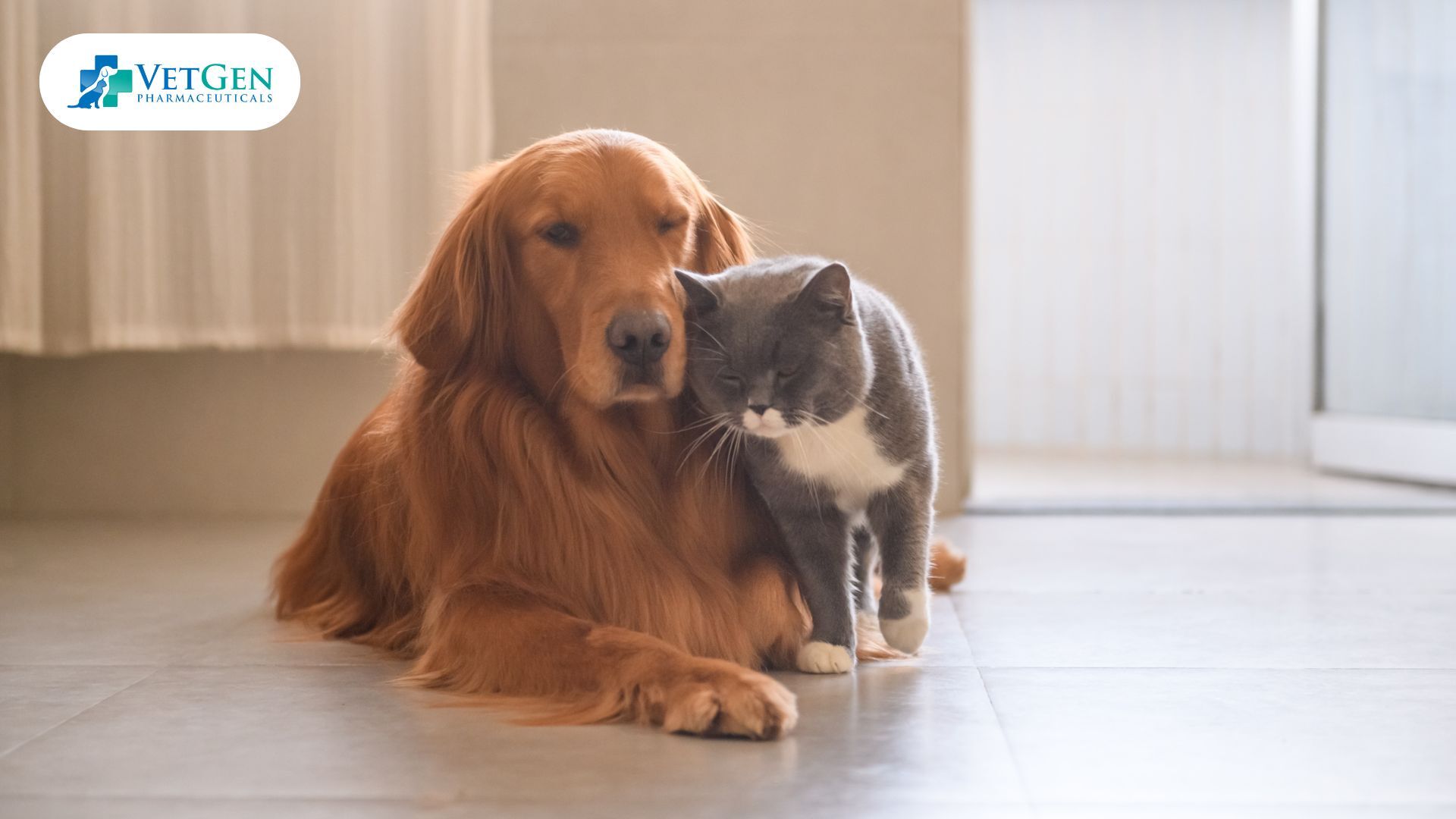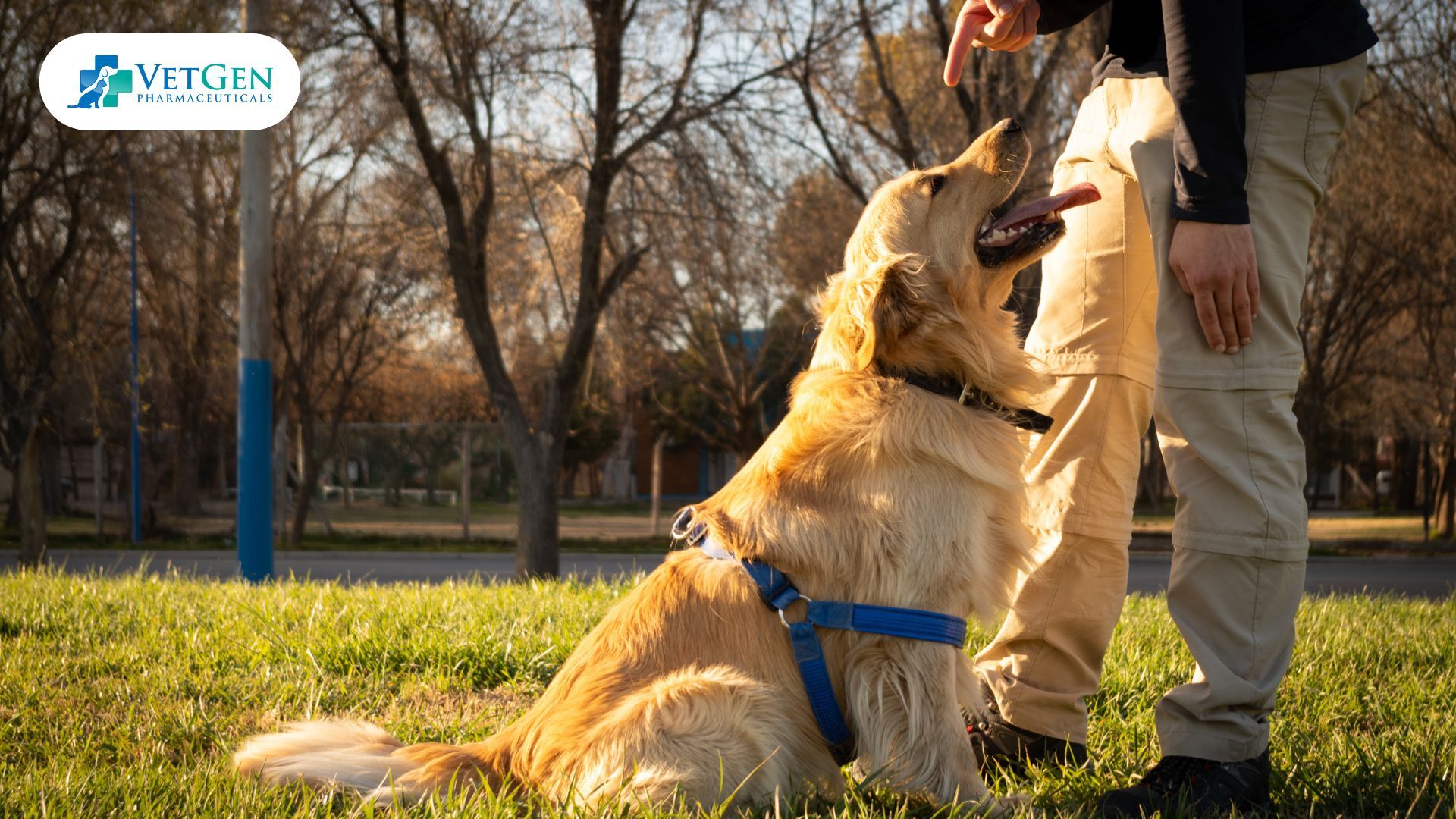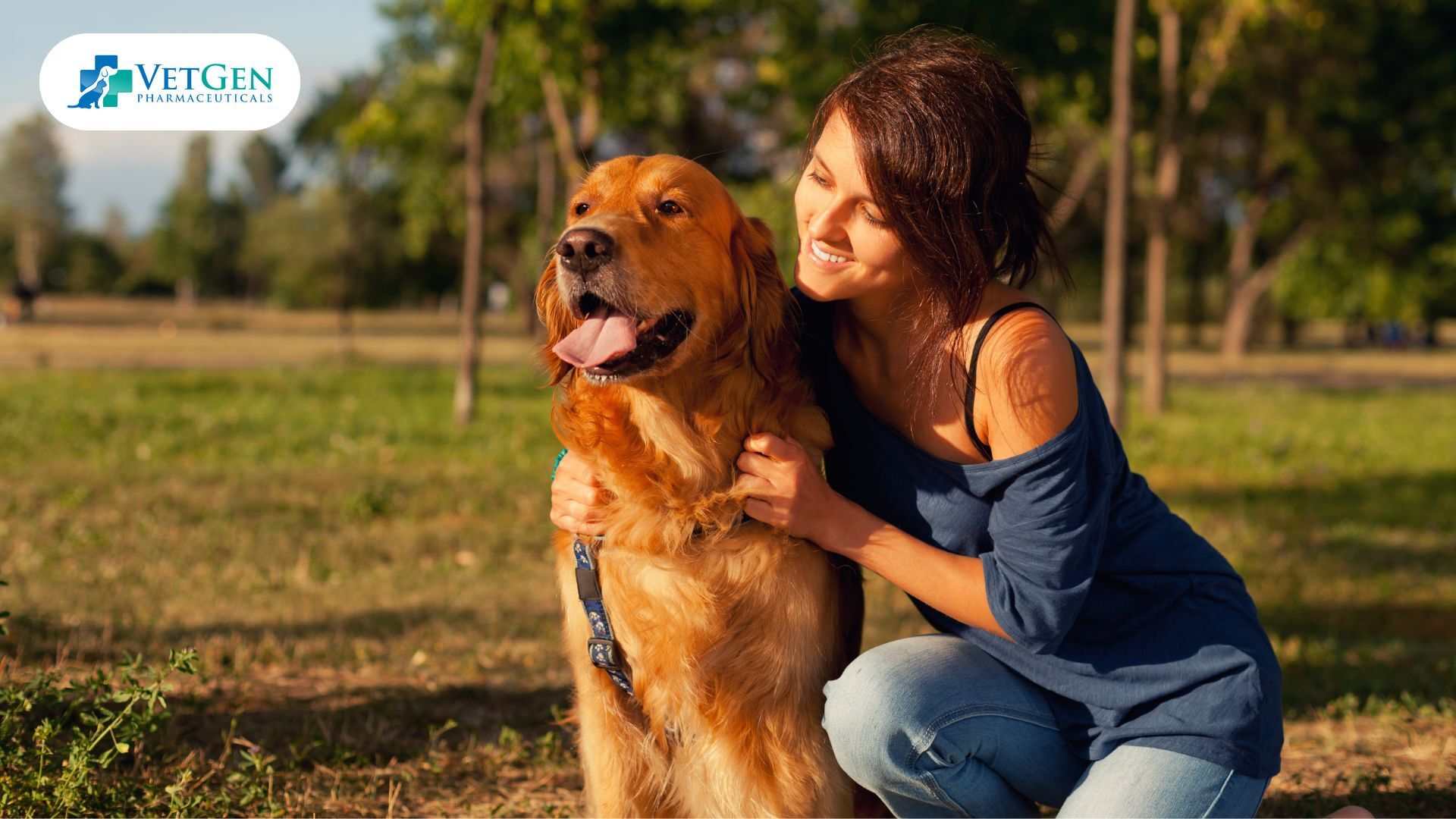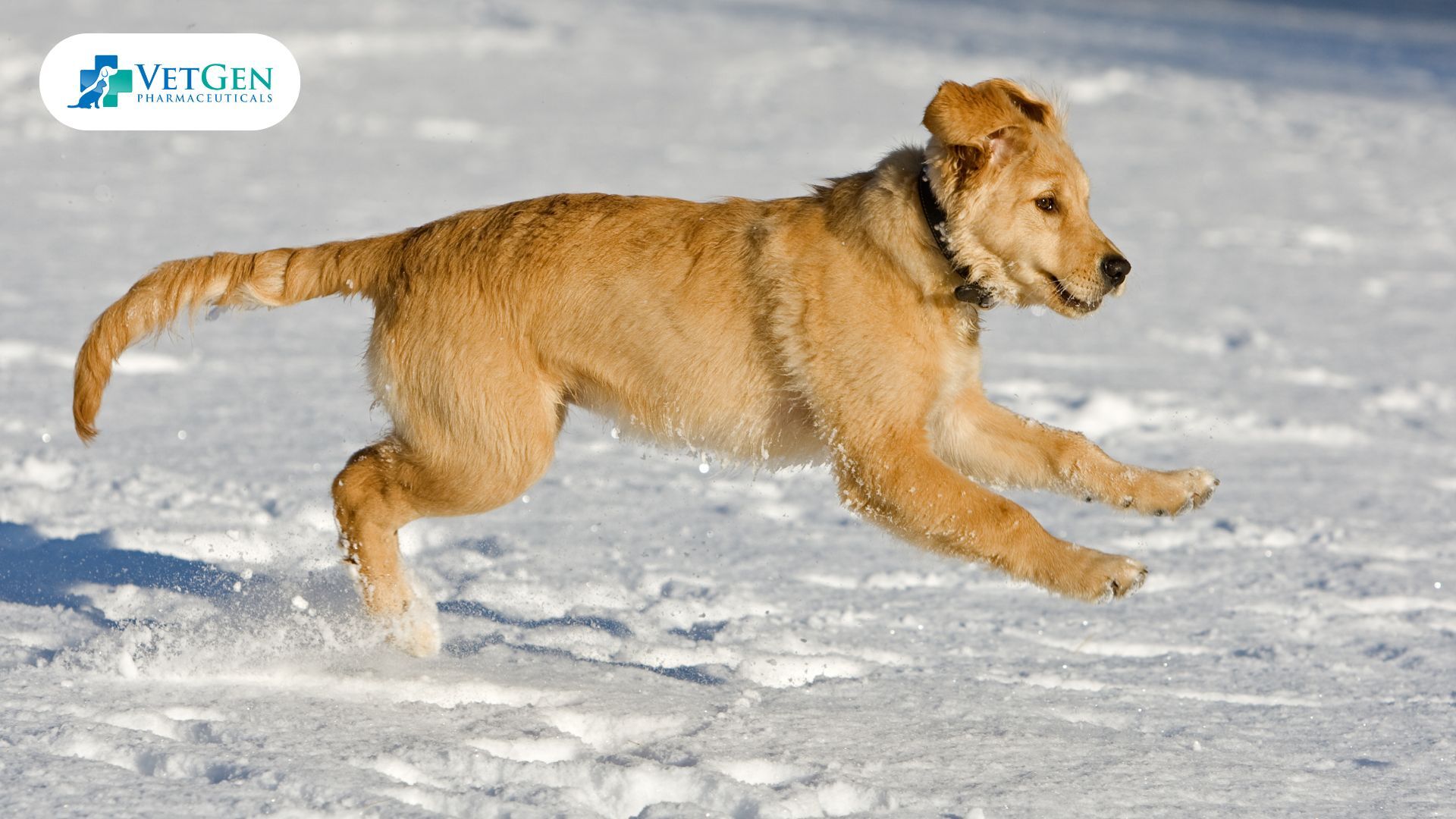Originally, Retrievers were bred to help hunters with their bird-finding tasks, as they were trained to bring back the birds unharmed with their soft and gentle mouths. At the same time, these dog breeds possess the required agility and strength to travel across rugged landscapes and even cross various water bodies to perform their errands.
Today, Golden Retrievers are helpful for search-and-rescue teams and can even act as guides for visually impaired people.
With time, Golden Retrievers have evolved and developed their kind and soft nature, playfulness, intelligence, and agility. They can be the best gift dog lovers can have in their lifetime.
The good news is that they are extremely trainable to carry out tasks and commands ranging from simple errands and obedience to high-end service roles, like guiding the blind, medical alert tasks, offering mobility assistance, and providing emotional support in therapeutic settings.
However, Golden Retriever parents must train them constantly to ensure they are socializing well and are growing into self-confident adults. Since a Golden Retriever is easy to train, it is an excellent option for first-time pet parents. Wondering what would be the best techniques and commands to train your Retriever? Here are some helpful tips for you.
5 Tips to Train Your Golden Retriever
Before jumping in with your training sessions with your newly adopted Golden Retriever, focus on safety first. Spare some time finding the best leash and collars for your pawed companion to ensure they are comfortable.
You can start with the collar to ensure safety, as it serves as the anchor for numerous training tactics. Besides, collars and leashes will be safe and comfortable for both of you. Just refrain from attaching the collar too tight, as it might lead to breathing issues for your dog.
Here are five effective strategies to train your Golden Retriever.
1. Reward Good Behavior and Obedience
Your growing Retriever is like a child who needs constant motivation and love. Don’t forget to reward your furry friend with its favorite treats and toys every time it exhibits good behavior to let them know what are acceptable social behaviors.
However, if your pet is showing some unwanted or negative behavior, you should work on determining the underlying cause. You must stay a little more vigilant to understand why your pet is behaving in a certain way.
For instance, you have probably mistakenly awarded your puppy for some unacceptable behavior. The next time your dog exhibits such negative behavior again, remove that reward.
You can even assign some sweet and positive punishment to every non-acceptable behavior, such as blowing air horns or making noise with coin-filled cans, tapping its nose with a harmless object (like a newspaper), etc. However, you must never call your dog solely for punishment. It may create a notion about your unpredictable nature in their little minds, and if that continues, they may lose trust in you.

2. Keep Training Sessions Short
Take one step at a time and focus on training one skill per day or week. Avoid lengthening the sessions and keep it fun and simple. The ideal training length should be 10–15 minutes, especially for little puppies.
For instance, if you are training your golden on how to sit and stay, you can dedicate one or two sessions to teaching how to sit on command and another session on how to keep seated.
On the following day, you can train it to remain seated while you walk away, and on the next, you can train your pup to stay still in a more crowded environment, such as a park.
Start incorporating simple commands, like “Sit down”, “Stay”, “Come, Max”, “Quiet”, etc. This way, you can break down and simplify your sitting and obedience training sessions, making them more effective.

3. Make it a Family Project
Don’t do it all alone. Just like a child needs an entire family for a healthy upbringing, so does a pup. Assign some training and caregiving tasks to all your family members, including your other house pets. Encourage them to incorporate simple commands in everyday tasks, such as making them sit, stay, or perform some errands.
When you feel your family members are busy with some family function and would be unavailable for continuous supervision, you can assign such tasks to your other pets.
Involving your family in training your golden would help your pet bond with them better, and build healthy relationships. As a result, it will help them learn some socializing skills
, allowing them to grow up as confident adults.
4. Stick to a Particular Schedule
Golden Retrievers are highly energetic and therefore, owners must be precise about their training sessions. Your instructions must be clear and straightforward to make your pet understand every bit of it. Keep treats as rewards handy and award your pawed friend at the right time.
To keep things organized, set a schedule and assign a time slot against each activity or training session. Ensure that repetitive tasks are scheduled at the same time every day to help your pet develop a habit, allowing them to become more responsive. For instance, take your dog for a walk at the same time in the morning and evening every day.

5. Bring on Your Energies!
Golden retrievers are high on energy and vitality; they can’t stay still in one place for hours. They love to play around, jump and hop, and explore their surroundings with curiosity. Some Golden Retriever pups are hyperactive in their adolescent period. Therefore, training a retriever is not the job of lazy and inactive people, who would rather love staying indoors than step out.
Bring on your energies during your training phases and make it enjoyable for your golden. Unless you match their energy with yours, you might miss out on some lovely moments with your beloved golden.
Some ideal games to keep your golden energetic and happy are fetching, treat hunting, chasing a flying disc, and tug-of-war. Even if you are drained after a long day, you can engage in fun indoor activities or simply communicate with your four-legged companion to brighten the day.

Final Thoughts
So, we learned how keeping our training sessions short and precise would help our furry companions learn basic life and socialization skills. If you feel you are overdoing it, slow down and probably take a step backward to avoid making it stressful and hard for your pet. To learn more about your Golden Retriever’s best physical and mental health needs, visit VetGen Pharmaceuticals.






